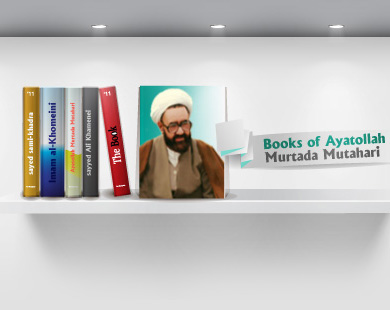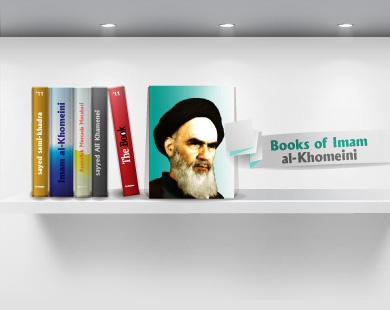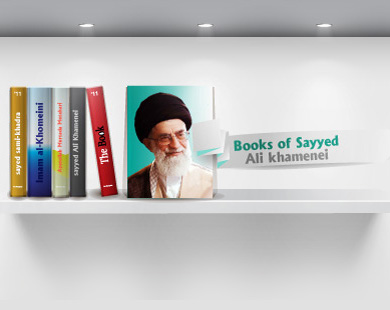Religious public sovereignty is a new term in global political discourse, which arose in the cradle of the political structures of Islam and was influenced by the teachings of the Prophet and Alawites. It is based on protecting people’s rights at the political level, managing the society’s issues and preventing authoritarian governments samples, and taking into account the fundamental concepts and basis of values. Thus, the Islamic regime is distinguished from the western secularism samples. For this goal, a new method was included in the Islamic government, neither it is authoritarian nor Librarian. The honor Leader of the Revolution expressed this governance as “religious public sovereignty.”:
Public sovereignty has two sides: the first side is people's role in the government formation and electing the officials. The second side is solving people’s problems; On this basis, officials should seriously pursue people’s problems and solve them.1
In other words, public sovereignty isn’t only represented in the regime through the millionaire attendance of voters at the ballot boxes, but also in the determined work of the regime to serve the public. Through this definition of public sovereignty, people will attain a better dignity than that acquired in the western democracy. In this definition of public sovereignty, the government will give care to the opinions and thoughts of the knowledgeable and cultivated people and protect them.
Thus, Islamic governments, which are a result of a public and wise revolution of bravery and eager people, cannot be other than a “government of people”. Thus, the honor Leader of the Revolution insisted on knowledge and the necessity of the officials and even the Illuminatis to give attention to the highest goal of the public:” The Islamic people are strong and wealthy. Why? Because they are intelligent and ready people, they have a great generation of youth which is considered as a very great capital in this contemporary period… They are faithful people.2
The enemy, through stealing the trust in the role of the undergraduates, is trying to establish translated (western) theories in their brains and pick them off from the public. Thus, one of the most important ways to face these attempts is to maintain the intellectual relation and connection between undergraduate and university professors and the public, and adhere more and more to the principles and origins of the Islamic Revolution. 3
In addition, the leader’s admonition to the public and his recommendation to the society’s elites to be connected to the public and close to them is a prominent aspect of public sovereignty. In fact, emphasizing the awareness and leadership of the public in comparison to officials and elite is an indication of the core of religious pubic sovereignty, which is not much accepted by Western thinkers- especially the followers of the elitist trend: “The public is prior to all officials, compartments and parties”. 4
As we have previously explained, although religious popular sovereignty takes into account the aspect of public consent, it also does extend beyond the limits of the legal structures and principles of society. In fact, it is presented, as the will of the Muslim peoples, to demand the realization of the supreme Islamic goals. This type of people’s governance consistent with the centrality of values is the strong support for the Islamic government, which His Eminence believes can solve all problems and defects in light of the realization of the authentic Islamic society:
The Islamic regime is able, through its great support, unparalleled popular protection, its structural and organizational stability, and the sense of officials’ responsibility before God, to solve all existing problems and challenges well, and to write a new era in the history of this country. 5
This fact has been considered by the regime of the Islamic Republic of Iran that considers public sovereignty a supportive supporter of the pivotal values, repeatedly since the beginning of the victory of the revolution and the establishment of the Islamic Republic, until today. The great participation of the people in the arenas of revolution, elections, war, and demonstrations was an influential factor in preserving this revolution. Its last example can be seen through the Koi Daneshgah incident. There, the popular backer of the government blocked the path of strife against the troublemakers, and an example of the people’s governance was once again seen in our society: “Despite the relentless efforts of the enemies to make a rift and suspicion in the public opinion of the Iranian people, the various classes of the firm, faithful, and determined people descended as a roaring torrent into the roads, and once again showed their unity”. 6
Thus, "public religious sovereignty" was proposed as a suitable alternative to Western democracy in Islamic government, and a practical model in which the people are the structure, the center and the government, elites and officials are charged with thanking and serving their benefactor. At the same time, the people also strive, through adherence to the principles and value premises, to achieve Islamic goals and the governance of Islamic thought.
The Religious Governance of People in the Discourse of the Leader Al Khaminai (may God protect him),Ali Fayyad
[1] The Islamic Republic newspaper, 1 March 1379.
[2] Kayhan newspaper, 25 Aban 1379.
[3] The Islamic Republic newspaper, Esfand 10, 1379.
[4] To read about the origins of religion and its foundations and the place of the people in it: Hossein Becharreh, Political Sociology, (Tehran: Ni, 1374).
[5] Same source.
[6] Same source.




















